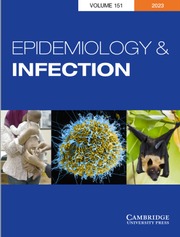Article contents
Survival of Salmonella typhi in sea-water
Published online by Cambridge University Press: 15 May 2009
Summary
The bactericidal activity of natural sea-water on S. typhi is due to the combined effect of pH, salinity, toxic ions, presence of competitor and predator marine organisms, unidentified heat-labile toxic substances and competition for the limited food supply. Sea-water subjected to filtration and autoclaving lost the major part of its bactericidal activity. It is concluded that predators and competitors contribute significantly to the rapid death of S. typhi in raw sea-water. The addition of peptone decreases the bactericidal activity of sea-water. The fluctuations in the total number of competitors and predators in sea-water together with the fluctuations in the concentration of heavy metal ions may be affected by various factors. Such fluctuations are probably responsible for the variable bactericidal action of different sea-water samples.
Bathing in sewage-polluted sea-water carries with it a health risk in spite of the excessive dilution of pathogenic micro-organisms in the sea and the rapid self-purification process of sea-water. The natural purifying processes are incapable of coping with massive pollution problems and should not be relied on as the sole protection offered to users of sea-water.
- Type
- Research Article
- Information
- Copyright
- Copyright © Cambridge University Press 1972
References
REFERENCES
- 7
- Cited by


